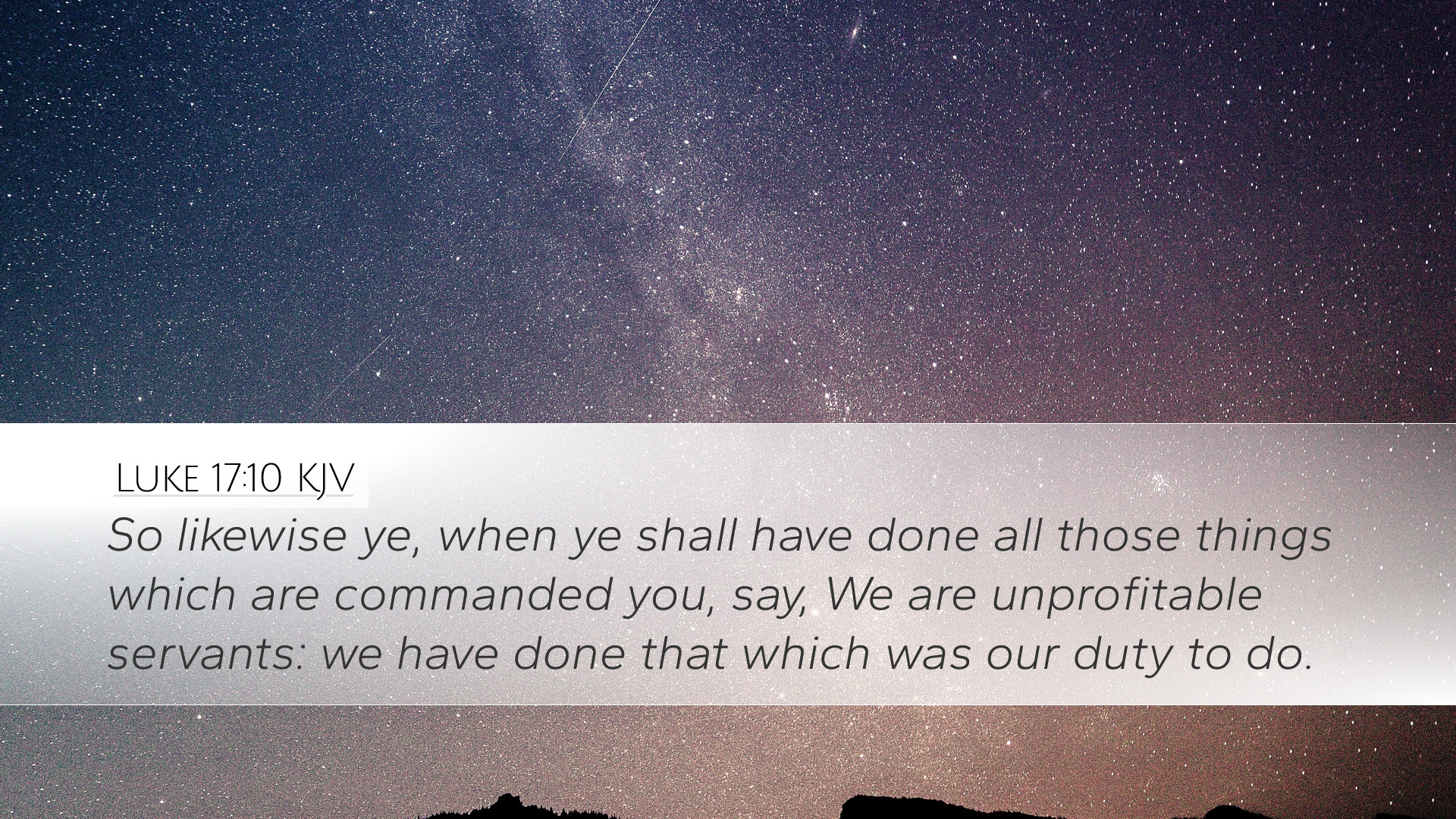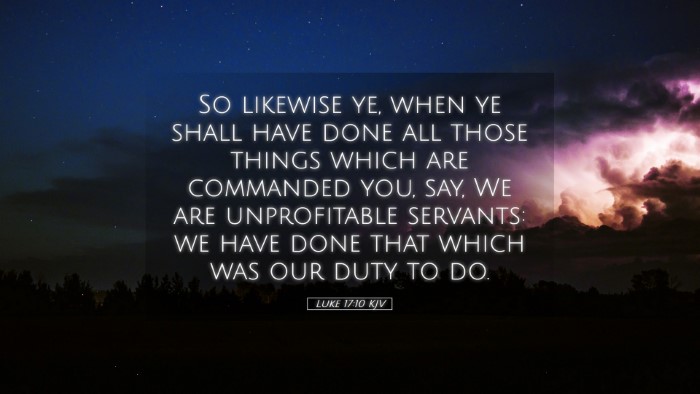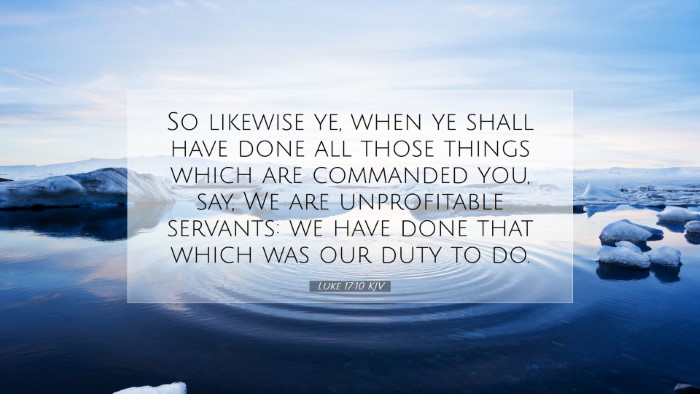Luke 17:10 - A Commentary
In Luke 17:10, Jesus states, "So likewise ye, when ye shall have done all those things which are commanded you, say, We are unprofitable servants: we have done that which was our duty to do." This verse encapsulates a profound teaching on humility, servanthood, and our relationship with God. Below, we explore insights drawn from public domain commentaries, focusing on the implications of this passage for pastors, students, theologians, and Bible scholars.
Contextual Background
This verse is found in a section where Jesus instructs His disciples about faith, duty, and gratitude. The surrounding context emphasizes the importance of faith in obligations and relationship with God, extending the theme of servanthood that pervades the teaching of Jesus throughout the Gospels.
Insights from Commentaries
Matthew Henry's Commentary
Matthew Henry emphasizes the essence of servanthood in this passage. He notes that the illustration of the unprofitable servant is not meant to demoralize; rather, it is a call to recognize our position before God. He notes:
- Humility in Service: Henry highlights the need for humility in our service to God. Even when we have fulfilled our duties, we are still to regard ourselves as unprofitable, recognizing that any good we do is but the fruit of God's grace.
- Duty vs. Reward: He emphasizes that our service should not be motivated by the expectation of reward, but rather as a basic obligation. Our primary purpose should be to obey God, and any idea of entitlement in our service overshadows the grace from which our ability to serve flows.
Albert Barnes' Notes
Albert Barnes, in his commentary, provides a deeper dive into the language and implications of the original Greek text. He points out:
- Meaning of "Unprofitable": Barnes elucidates that the term 'unprofitable' mentions our status not in a way that implies worthlessness, but rather in recognition that we do not add to God's glory through our works. Instead, it is God's grace that enables any service we provide.
- The Nature of Service: He encourages a reflection on the nature of servitude, stating that true servants do their duty without seeking acknowledgment or praise. Effective service should stem from genuine obedience and love, rather than a desire for recognition.
Adam Clarke's Commentary
Adam Clarke adds to the discussion by reviewing the character of the servant in Jesus' analogy. He states:
- Understanding Duty: Clarke asserts that serving God is an inherent duty of every believer. He expounds that one must never consider completed duties as grounds for self-congratulation but rather as responsibilities that are in line with what God requires from us.
- Spiritual Maturity: He correlates the understanding of being 'unprofitable' with spiritual maturity, emphasizing that as believers grow in faith, they learn that their service is not for self-glorification, but for the glory of God alone.
Theological Implications
This verse serves as a vital reminder of our position relative to God. Theologians parse out several implications:
- The relationship of grace and duty - understanding that while we are called to serve, it is ultimately through grace that we fulfill our servants’ role.
- The missional aspect of servanthood - as we serve others selflessly, we reflect the character of Christ, demonstrating His love and humility in a world that often seeks to elevate self.
- The potential dangers of pride in service - recognizing that any recognition we might seek for our service detracts from the glory due to God alone.
Practical Applications
Pastors and church leaders can derive numerous practical applications from this teaching:
- Encouraging a Servant's Heart: Cultivating an environment where both leaders and congregants understand the nature of service as a duty, rather than a means to earn favor or recognition.
- Promoting Humility: Regularly preaching and teaching on humility as a central theme of Christian life, thereby fostering a church culture that prioritizes service for its own sake.
- Modeling Unprofitability: Being an example of unprofitable service through actions that demonstrate sacrificial love for others and total reliance on God's provision and grace.
Conclusion
Luke 17:10 challenges us to adopt a posture of humility in service, reminding us that everything we do is in response to God's command, and we should not seek pride in our accomplishments. Through the reflections of Henry, Barnes, and Clarke, we are reminded that our contributions to God's kingdom are seen through the lens of divine grace, affirming the beautiful complexity of our relationship with Him.


